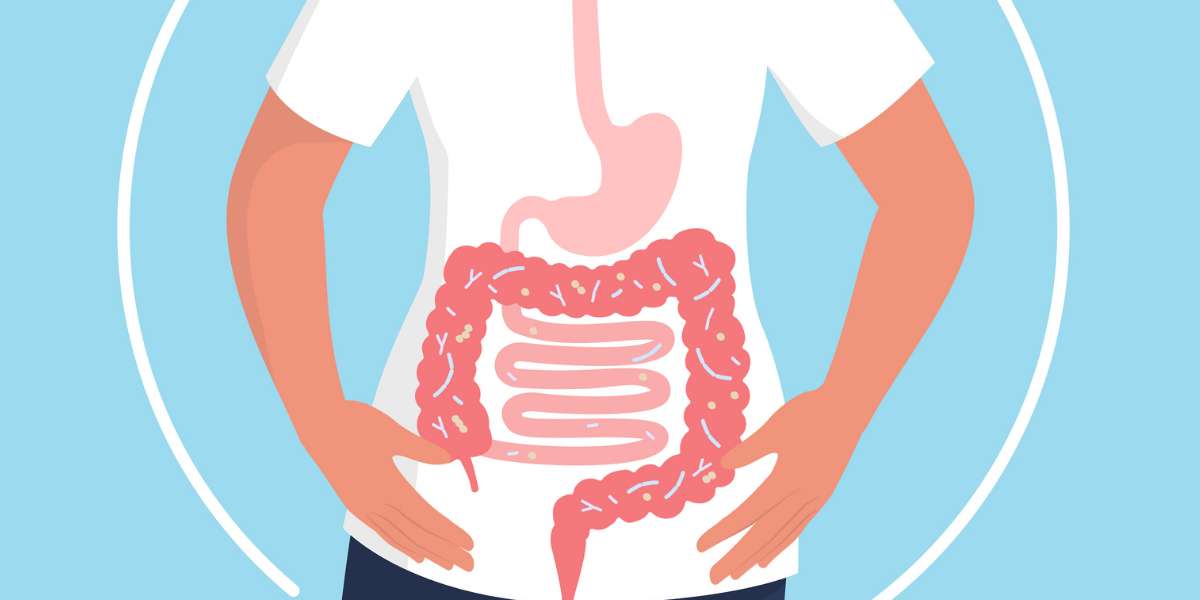Digestive disorders encompass a wide range of conditions that affect the gastrointestinal tract, disrupting the body’s ability to efficiently process food and absorb nutrients. From occasional bloating and indigestion to more severe conditions like irritable bowel syndrome (IBS) and Crohn’s disease, digestive issues can significantly impact one’s quality of life. However, by implementing simple yet effective strategies, it’s possible to transform digestive health and experience a renewed sense of well-being.
Understanding Digestive Disorders
Digestive disorders refer to conditions that interfere with the normal functioning of the digestive system. These can include acid reflux, gastritis, constipation, diarrhea, and more serious conditions such as ulcerative colitis and celiac disease. Symptoms vary depending on the specific disorder but may include abdominal pain, bloating, gas, diarrhea, constipation, and nausea.
The causes of digestive disorders are multifaceted and may include dietary factors, stress, genetics, medication use, and underlying medical conditions. Understanding the root cause of your digestive issues is essential for effectively managing and treating the condition.
The Impact of Digestive Disorders on Daily Life
Living with digestive disorders can have a profound impact on daily life. Beyond the physical discomfort and pain, individuals may experience emotional and mental distress, leading to anxiety, depression, and a decreased overall quality of life. Digestive issues can also affect social interactions, work productivity, and leisure activities.
Transforming Digestive Health
Fortunately, there are simple steps that can be taken to improve digestive health and alleviate symptoms. One of the most fundamental aspects is making dietary changes. Avoiding trigger foods such as spicy, fatty, and processed foods, and incorporating more fiber-rich fruits, vegetables, and whole grains can help regulate digestion and promote gut health.
Additionally, lifestyle modifications such as managing stress levels, staying hydrated, and getting regular exercise can have a positive impact on digestive function. Stress management techniques such as deep breathing, meditation, and yoga can help calm the nervous system and reduce symptoms of stress-related digestive disorders.
Holistic Approaches to Digestive Wellness
Taking a holistic approach to digestive wellness involves addressing not only the physical aspects but also the emotional and mental components. Practices such as mindfulness and meditation can help individuals become more attuned to their body’s signals and develop a healthier relationship with food.
Incorporating gut-healthy foods such as probiotics, fermented foods, and prebiotic-rich foods into your diet can promote the growth of beneficial gut bacteria and support overall digestive health. Examples include yogurt, kefir, sauerkraut, kimchi, garlic, onions, and bananas.
Hydration and Digestive Health
Proper hydration is crucial for maintaining optimal digestive function. Drinking an adequate amount of water throughout the day helps keep stools soft and facilitates bowel movements. Herbal teas such as peppermint, ginger, and chamomile can also aid digestion and soothe an upset stomach.
Supplements for Digestive Disorders Support

In addition to dietary and lifestyle changes, certain supplements may be beneficial for supporting digestive health. Digestive enzymes can help break down food more efficiently, while herbal remedies such as peppermint oil and ginger can alleviate symptoms of indigestion and bloating.
Mindful Eating Practices
Practicing mindful eating involves slowing down and paying attention to the sensory experience of eating. Chew your food thoroughly, savor each bite, and listen to your body’s hunger and fullness cues. This can help prevent overeating and promote better digestion.
The Role of Gut-Brain Connection
The gut-brain connection refers to the bidirectional communication between the gastrointestinal tract and the brain. Stress, anxiety, and other emotional factors can influence gut function, leading to symptoms such as abdominal pain, bloating, and changes in bowel habits. Managing stress through relaxation techniques and therapy can help improve digestive health.
Seeking Professional Help
While lifestyle changes can often improve digestive symptoms, it’s important to consult with a healthcare provider if you’re experiencing persistent or severe symptoms. Your doctor can perform diagnostic tests to identify the underlying cause of your digestive issues and recommend appropriate treatment options, which may include medication, dietary modifications, and alternative therapies.
Case Studies: Success Stories in Digestive Health
Real-life examples of individuals who have successfully overcome digestive disorders can provide inspiration and hope for others struggling with similar issues. By sharing their stories and experiences, these individuals can offer valuable insights and practical tips for managing digestive symptoms and reclaiming their health.
Maintaining Digestive Health Long-term

Achieving and maintaining digestive wellness requires ongoing commitment and consistency. Continue to prioritize healthy eating habits, stress management techniques, and regular exercise to support optimal digestive function. Listen to your body’s signals and make adjustments as needed to ensure long-term success.
Regular Monitoring: Keep track of your dietary habits, stress levels, and any recurring symptoms. This will help you identify triggers and patterns that may affect your digestive health.
Continued Education: Stay informed about the latest research and recommendations regarding digestive health. Understanding how certain foods and lifestyle factors impact your gut can empower you to make informed decisions.
Adaptation and Flexibility: Recognize that your digestive needs may change over time. Be willing to adapt your diet and lifestyle accordingly, taking into account factors such as age, hormonal changes, and evolving health conditions.
Supportive Community: Surround yourself with a supportive network of friends, family, or online communities who understand and empathize with your digestive struggles. Sharing experiences and tips can provide valuable encouragement and motivation.
Regular Check-ups: Schedule regular check-ups with your healthcare provider to monitor your digestive health and address any emerging concerns or symptoms. Early detection and intervention can prevent potential complications and ensure ongoing wellness.
Mind-Body Practices: Incorporate stress-reducing activities such as yoga, meditation, tai chi, or deep breathing exercises into your daily routine. These practices not only promote relaxation but also support gut health by reducing inflammation and improving digestion.
Hygiene and Food Safety: Practice good hygiene and food safety habits to minimize the risk of foodborne illnesses and infections that can disrupt digestive function. Wash hands thoroughly before handling food, store perishables properly, and cook meats to the recommended temperature.
Balanced Lifestyle: Maintain a balanced lifestyle that prioritizes adequate sleep, regular physical activity, and healthy coping mechanisms for stress management. Aim for at least 7-9 hours of quality sleep per night and engage in activities that bring joy and fulfillment.
By incorporating these strategies into your daily life, you can cultivate a resilient digestive system that supports overall health and well-being. Remember that small, consistent actions add up over time, leading to significant improvements in digestive function and quality of life.
Conclusion
Digestive disorders can significantly impact one’s quality of life, but with the right approach, it’s possible to transform digestive health and experience lasting relief from symptoms. By incorporating simple lifestyle changes, practicing mindful eating, and seeking professional help when needed, individuals can embark on a journey towards digestive wellness and reclaim their vitality and vitality.


